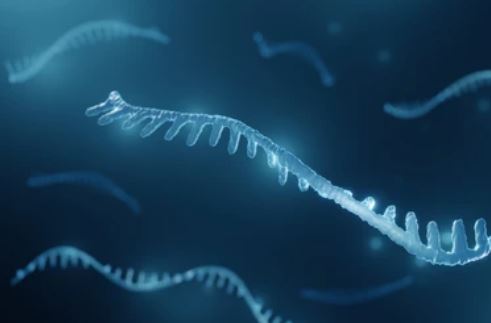
Liposomes can transport hydrophobic or hydrophilic molecules, including small molecules, proteins, and nucleic acids. The new generation of LNPs, including solid lipid nanoparticles, nanostructured lipid carriers, and cationic lipid-nucleic acid complexes, exhibit a more complex internal structure and superior physical stability. In the liposome-mRNA system, mRNA molecules are loaded in this inner core environment. Since mRNA is susceptible to degradation by various enzymatic proteins, special lipid components need to be formulated in precise proportions using a special process. The lipid components of different liposomes play different roles, including cationic lipids with positively charged heads that mix with nucleic acid polymers to form complexes that protect RNA and DNA from nuclease degradation and ionized lipids that are neutral at normal pH values but protonated and positively charged at lower pH values. Cationic/ionized lipid structures can weaken their toxic effects by reducing their immunogenicity. In addition, auxiliary lipids, including phospholipids, cholesterol, polyethylene glycosylated lipids, and other lipid components, can affect the stability of liposomes. In general, liposomes can also be linked to specific antibody molecules on their surface to confer liposome-mRNA targeting.
A liposome is a micro-spherical carrier formed by encapsulating an active ingredient in a lipid-like bilayer. The water-soluble components are encapsulated in the inner aqueous phase of phospholipids, and the lipid-soluble components are encapsulated between phospholipid bilayers. Liposomes are closed particles with bilayer membranes, and their aggregated lipid molecules encapsulate the active ingredients. They can be classified into large single-chamber liposomes, small single-chamber liposomes, and multi-chamber liposomes according to their particle size and structure. The particle size distribution of liposomes can be controlled by manufacturing methods such as extrusion, ultrasound, and homogenization. Recently, microfluidic methods have been successfully used for liposome manufacturing and size control.
Lifeasible offers liposome-encapsulated mRNA services. In addition to the encapsulation of small molecules of mRNA, we also offer encapsulation techniques for other substances, such as proteins. Our researchers use a thin film dispersion method to encapsulate mRNA molecules in liposomes.
The lipids are dissolved in chloroform, dried, and vacuum evaporated overnight under argon gas flow; the formed lipid layer is rehydrated with a nuclease-free aqueous phase, then vortexed, sonicated and extruded to obtain a monolayer of liposomes, and finally incubated to encapsulate mRNA.
The liposome encapsulation technologies we offer are not limited to the above. Our R&D team is continuously developing our services and will offer more types of services in the future. If you need a service that is not on the list, you can contact us promptly, and we can also provide customized services to meet your needs.
If you are interested in our services, or if the service you want is not listed, please feel free to contact us, and we will get back to you as soon as possible.